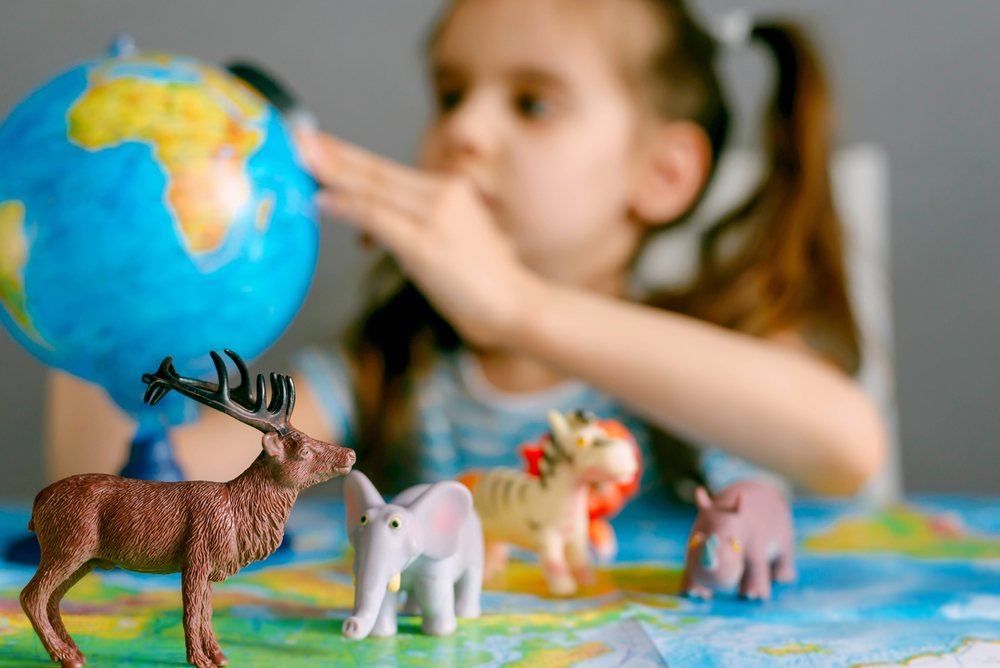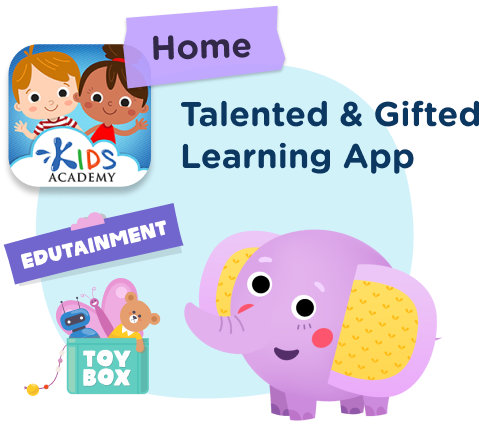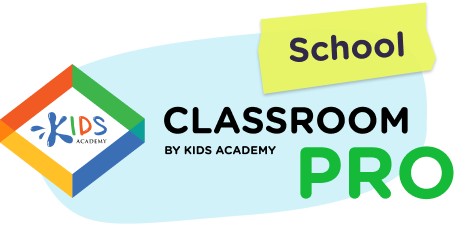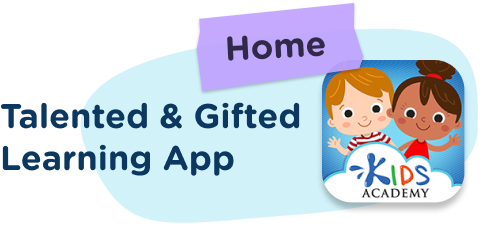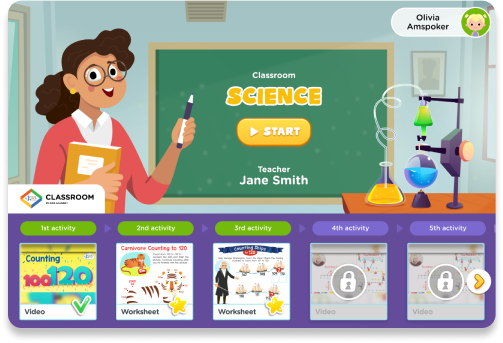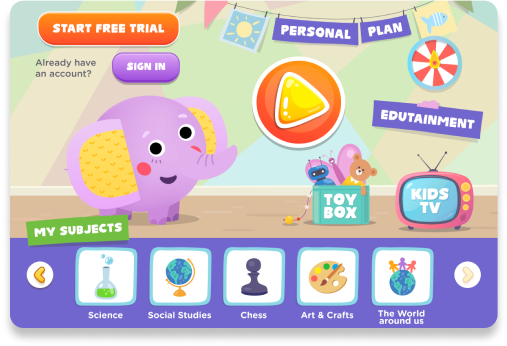Cultural awareness Normal Geography Worksheets for Ages 3-7
5 filtered results
-
From - To
Explore our engaging Cultural Awareness Normal Geography Worksheets designed specifically for children ages 3-7. These interactive worksheets foster an appreciation of diverse cultures and global awareness in young learners. With vibrant illustrations and age-appropriate activities, your little ones will embark on educational adventures that highlight different traditions, lifestyles, and geographic features. Each worksheet is tailored to develop critical thinking, enhance creativity, and promote discussion about cultural similarities and differences. Perfect for homeschooling or classroom use, these resources cultivate open-mindedness and curiosity in your child's early education journey. Discover the world together and encourage a lifelong love of learning with our cultural geography worksheets!
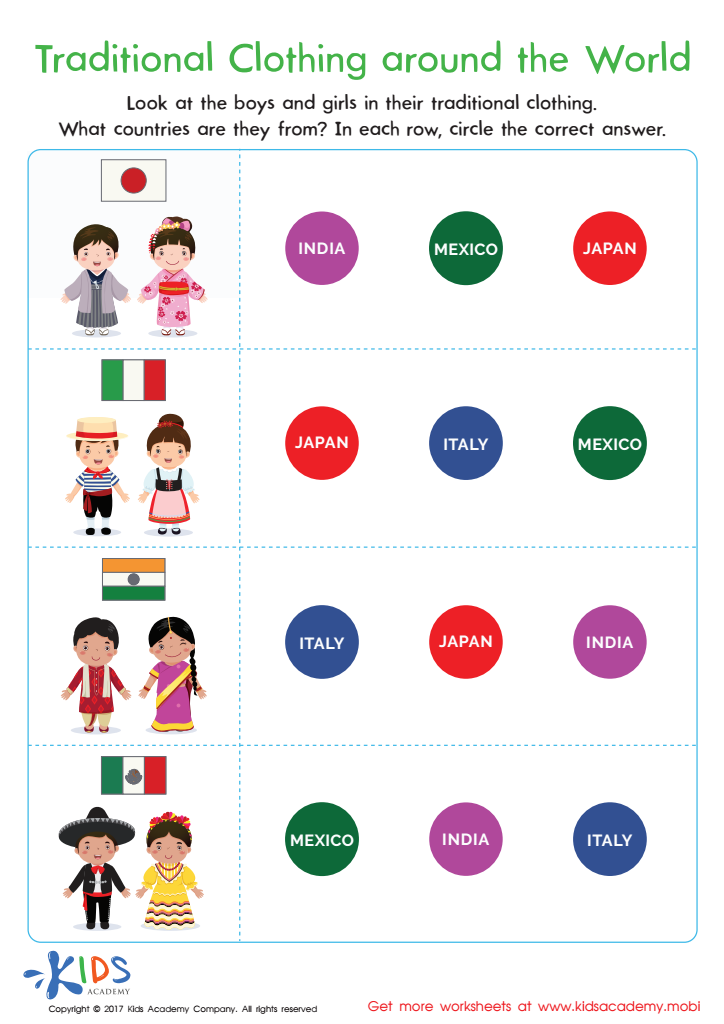

Traditional Clothing Worksheet
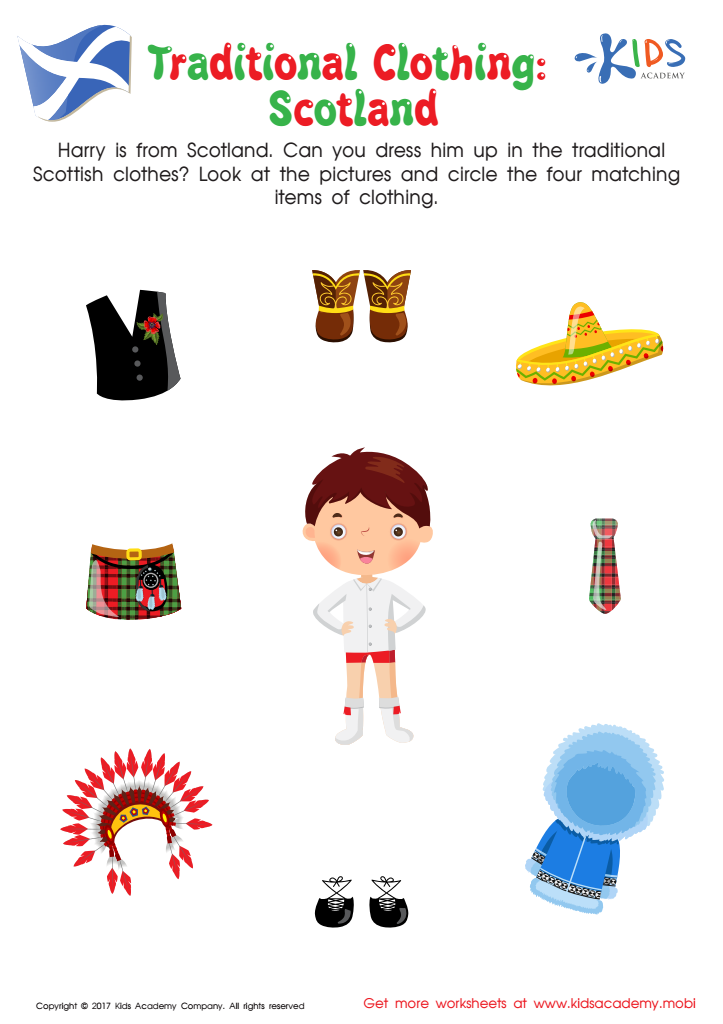

Traditional Clothing in Scotland Worksheet
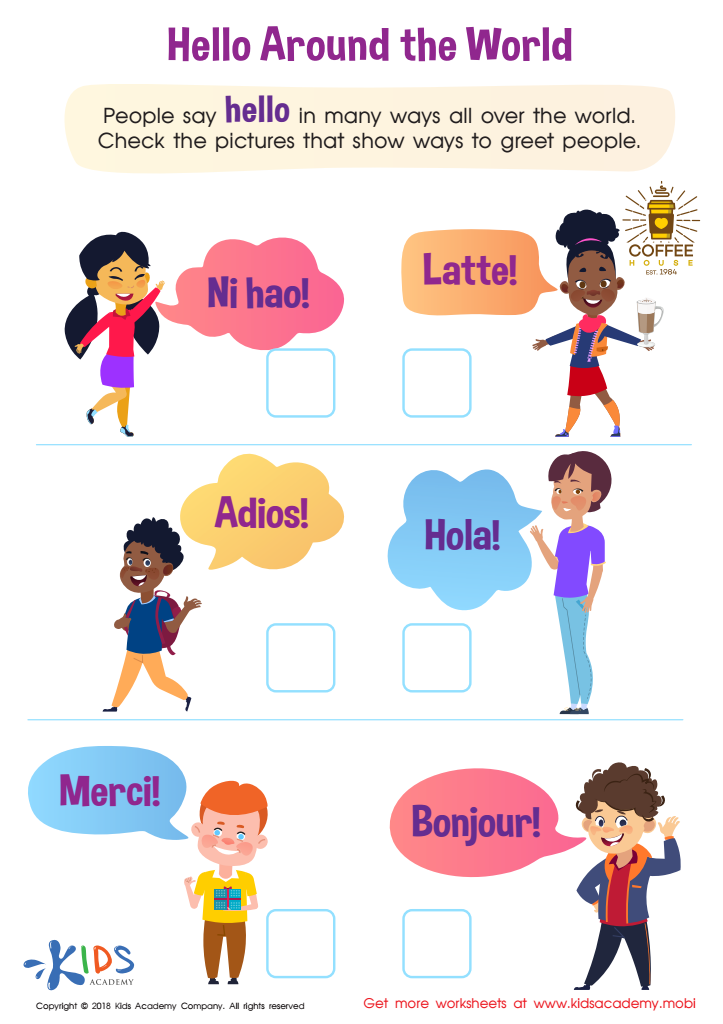

Hello Around the World Worksheet
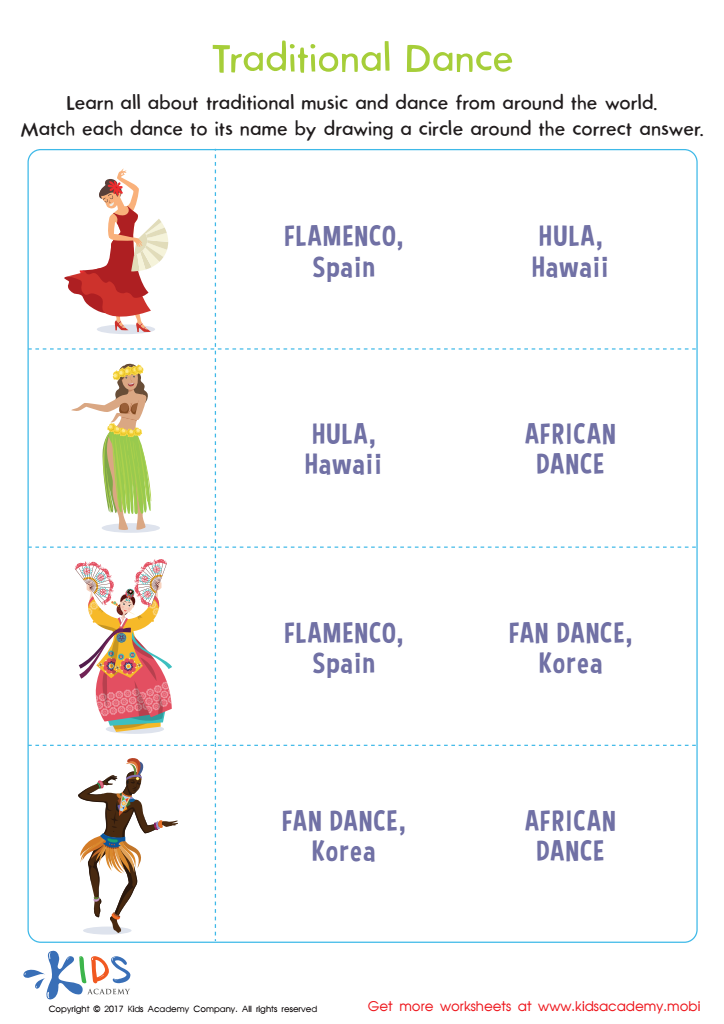

Traditional Dance Printable
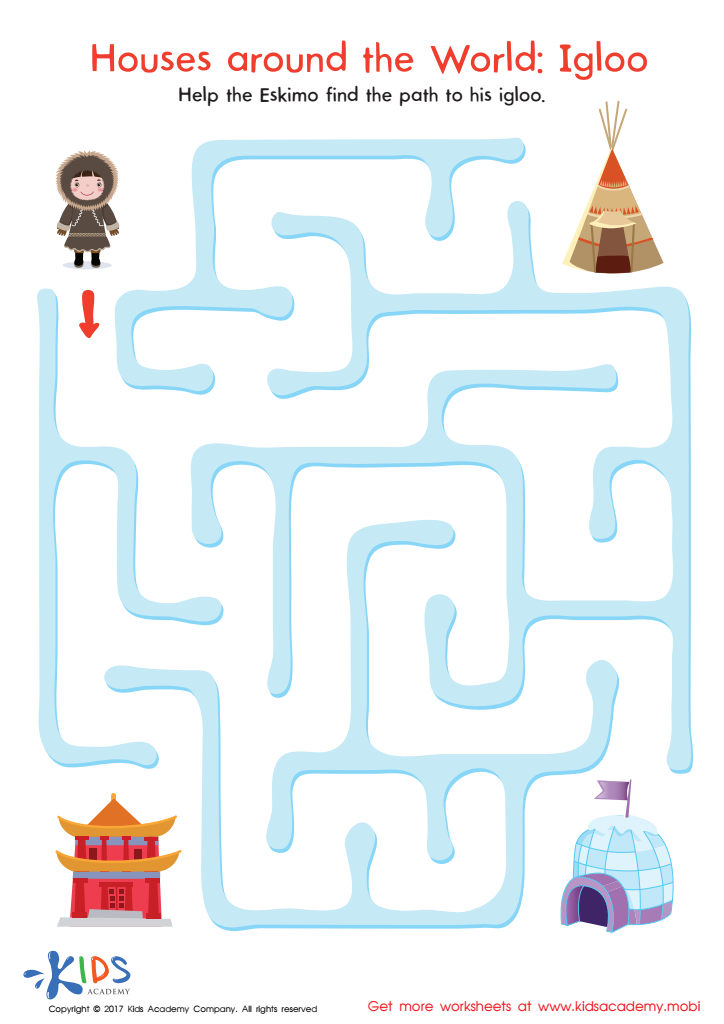

Houses Around the World: Igloo Printable
Cultural awareness and geography are vital components of early childhood education, particularly for children aged 3-7. During these formative years, children are highly receptive to learning about the world around them. Introducing concepts of different cultures fosters a sense of empathy, curiosity, and respect for diversity. When children learn about customs, traditions, and lifestyles of various communities, they develop a broader worldview, which nurtures inclusiveness and understanding.
Geography plays a crucial role in contextually grounding these cultural understandings. By exploring maps, landscapes, and the concept of space, children gain an awareness of where different cultures exist and how geography influences their ways of life. For instance, understanding how climate affects food, clothing, and shelter can broaden children's perspective and enhance critical thinking skills.
Moreover, instilling cultural awareness and geographic knowledge promotes social cohesion. It encourages children to appreciate differences while recognizing shared human experiences. Therefore, parents and teachers should actively integrate these subjects into the curriculum. This foundational knowledge not only prepares young learners to navigate an increasingly globalized world but also empowers them to become empathetic, culturally competent individuals who value diversity and inclusivity.
 Assign to My Students
Assign to My Students




